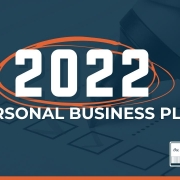3 Questions To Always Ask on Your First Sales Call
 As sales trainers, we are guilty of making the sales process much more complex than it needs to be. There are a limitless number of options and objections that a prospect can give to you throughout the sales process, and so we make an effort to understand and counteract each one.
As sales trainers, we are guilty of making the sales process much more complex than it needs to be. There are a limitless number of options and objections that a prospect can give to you throughout the sales process, and so we make an effort to understand and counteract each one.
But that is a mistake. Instead, we should be focused on one thing: The First Call.
Because if the first call doesn’t go right, then the third call won’t go right. Consequently, in an effort to make to the first call correct, then you need to ask these three very simple questions of the prospect in whatever format you choose to ask them.
1. What’s the problem?
It occurred to us that the percentage of salespeople who counsel never get to the question of “what’s your problem?” After all, what else is move pertinent in the sales cycle than your solution matching up to a problem the customer has?
Once you can get to the point where you have a “spot-on” solution for the customer’s problem:
- price is irrelevant
- terms are irrelevant
- what you’re wearing is irrelevant.
But how often do we all spend way too much time in the sales strategy meetings working on the irrelevant?
2. How much does it cost for you to have the problem?
Actually, the problem is only half the battle. The second half of the battle is the cost of that problem to the prospect. Yes, the topic of cost and money can be an emotional question, but how else are you going to determine what solution you bring to bear on the problem if you don’t know what the problem costs?
Plus, how else will the customer justify your solution and the cost of your solution if there has been no discussion on the cost of the problem?
3. How committed are you to fixing it?
 If you’re calling on professional buyers or corporate decision makers, this question is extremely important because there can be a default position of “living with the problem.” So, at some point during that first meeting, you must ask the question – directly or indirectly – whether this person is committed to fixing the problem that he just told you he has.
If you’re calling on professional buyers or corporate decision makers, this question is extremely important because there can be a default position of “living with the problem.” So, at some point during that first meeting, you must ask the question – directly or indirectly – whether this person is committed to fixing the problem that he just told you he has.
They may lie to you and tell you they are more or less committed than they really are. But, at least by getting it on the table, you can then come back to it at subsequent meetings if you feel like the answer you got was not the true answer.
Selling is not all as hard as we make it. But it becomes more difficult if you don’t ask the first three questions up front to not only help you – but more importantly it helps the prospect to give voice to what their issues are.







Great stuff, Bill. I’d add that I often find prospects don’t realize they have a problem, and/or don’t connect the dots between small issues and a big P Problem with significant financial risk. So, the first call may need to be more consultative and probing, asking questions that help them connect the dots and realize, uh-oh, this was a blind spot for me.